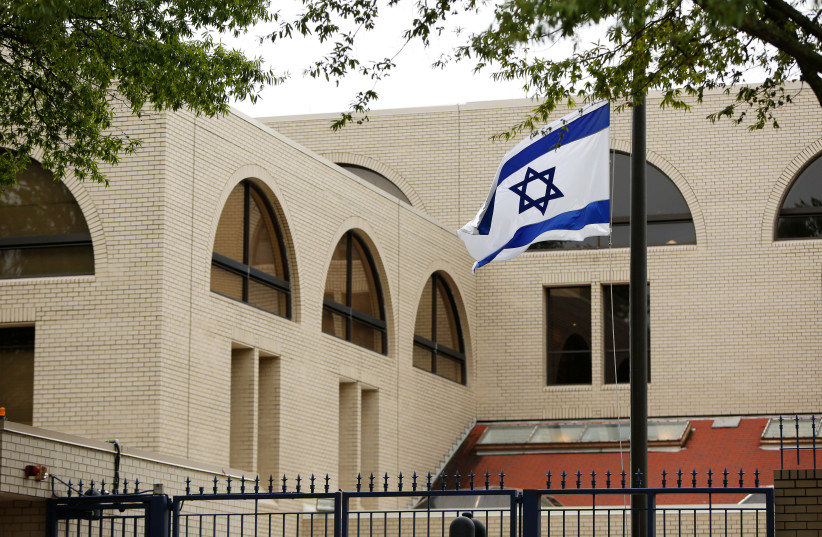After years of cuts to their living expenses, and with votes on the state budget approaching, the Foreign Ministry Workers’ Union is gearing up for a fight with the Finance Ministry.
The Foreign Ministry’s budget has faced continuous budget cuts, which the state comptroller pointed out in a critical report last year. In 2019, the budget dropped to NIS 1.385 billion, even though the ministry’s necessary expenses were NIS 1.53b. The budgets of all government ministries increased by an average of 5.7% in 2019, compared to 2018, but the Foreign Ministry’s dropped 14.7%.
Foreign Ministry workers have carried the brunt of these cuts. In Israel, overtime has been cut almost 40% in the past decade, though many must be in contact with Israeli embassies and consulates in distant time zones, in addition to working on local time. They are paid for only two “on call” days per month, whereas in reality they need to be available 24 hours a day throughout the month.
As for workers abroad, the union reported that COVID-19 has added to the workload of those working in consular services, who have to deal with requests to enter Israel, adding many hours of work that they are not paid for.
While the union and the Salary and Employment Agreements Department of the Finance Ministry reached an agreement in 2017 to raise salaries in the Foreign Ministry – for the first time since 2000 – the union said payment for the expenses of diplomats posted abroad has been cut such that they are earning less than before.

They now have to pay more for language lessons, which are needed to work in Israeli embassies and consulates around the world, and the state pays less for the education of diplomats’ children.
Single Foreign Ministry workers’ flights back to Israel, which enabled them to have long-distance relationships, were cut, and the union complained that this has destroyed those workers’ chances to raise families of their own.
Yosef Levi-Sfari, who leads the union, lamented that the public – as well as the Salary Department of the Foreign Ministry – does not understand how the Foreign Ministry’s work benefits them, beyond the core mission of the diplomats to help ensure Israel’s security.
“The greatest recent example is the work we did to allow people to travel during the COVID-19 pandemic,” Levi-Sfari said. “Many countries need vaccine passports for entry, and recognition of Israel’s comes from the hard work of the Economic Department.
“Our trade deals lower the cost of living in Israel, we negotiate science agreements, culture – there are a lot of arenas that impact Israelis’ day-to-day lives.”
Galit Peleg, director of projects abroad for Mashav, Israel’s Agency for International Development Cooperation in the Foreign Ministry, said the Foreign Ministry brings large amounts of money into the Finance Ministry’s coffers by facilitating investments in Israel.
“Every one of us can give examples of breakthroughs in those areas, as well,” Peleg said. “Our work has monetary value; the Finance Ministry should take it into consideration.”
Yacov Livne, director of the Foreign Ministry’s Euro-Asia Department and appointed ambassador to Poland, lamented that the Finance Ministry “refuses to understand” the workers’ needs: “Their approach is that the country is doing us a favor by sending us on a trip, as if we’re just having fun.”
Foreign Ministry workers abroad need the conditions that allow them to do their jobs well, Levi-Sfari added.
“We want to be able to host guests, to hire good workers and to learn languages. We need to not be worried about our families and have our children in proper schools. These conditions were cut,” he said.
Levi-Sfari explained why budgets for diplomats to have respectable homes in which they could welcome guests are important to his work.
When he was Israel’s consul-general in Istanbul, he invited the ecumenical patriarch of Constantinople, the spiritual leader of Orthodox Christians worldwide, to a Hanukkah dinner in his home, along with the consuls-general of Russia and Greece and the chief rabbi of Turkey.
“The consuls-general were so excited about the patriarch and grateful to have met him. That opened doors for me to meet with them,” Levi-Sfari said. “This connects to security issues; Turkey is on the border with Syria, and the Russians are in Syria.”
Levi-Sfari said the workers have high expectations from Foreign Minister Yair Lapid because they view him as a minister who understands the ministry’s importance, but he must “take things in his hands... before we have to devolve into a public battle.
“In the end we love what we do and are very committed to it – and we’re pretty good at it,” Levi-Sfari said. “But not a day goes by in which I don’t get messages from the workers about something else cut. It’s exhausting the whole system.
“There is no reason Foreign Ministry workers should have to fight to educate their children,” he added.
